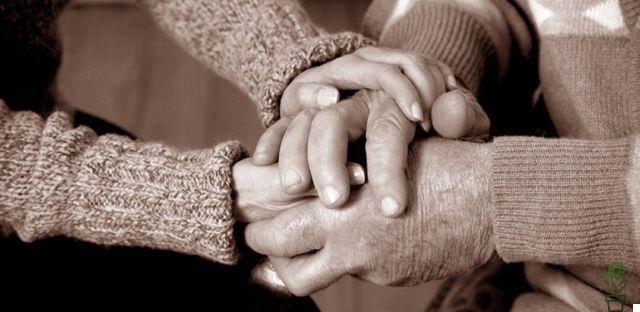
Many people think that compassion and pity are the same thing. It is not so. A world separates them. Furthermore, the effects on people who experience them or who are objects of pity or compassion are totally different.
We can feel pity for someone who is worse off than us, for that person who has not been so lucky, for those who have failed to realize their dreams and have been massacred by life. And if we identify with that image, we can even feel sorry for ourselves. But pity is a dead end while compassion is an open window on hope.
The roots of piety
Aristotle believed that pity was an emotion. In fact, it makes us feel bad to see someone in trouble. In a way, we are empathetic with his pain. We feel pain and sadness. Sometimes even anger. However, we rarely do anything.
Piety is also linked to inactivity. It leads us to see the pain of others from a psychological distance that makes us feel on a higher level, as if in a certain way we are safe from the misfortune of others.
When we feel pity, we place ourselves above that person, both infantilizing him and making him a poor victim. We believe that she cannot do anything by herself to get out of this pitiful state and that she needs a "savior".
In fact, piety can lead us to perpetuate the suffering of others and our own. If we feel sorry for a person, we may not be completely honest with them, and even if we realize their problem, we don't talk about it because we think they won't be able to handle it.
Unfortunately, many people also maintain relationships that are no longer satisfying and growing, without realizing that companionship out of pity does not mitigate loneliness, but increases the inner emptiness. Out of pity, we do not report mistakes to others and close our eyes to their mistakes, thus limiting their chances of growth.
Pity, therefore, ends up being exhausting even for those who experience it. He drains his energy as he binds his hands and feet to stop him from helping the other person solve the problem. Thus, pity ends up generating an increasingly helpless victim and a suffering savior.
The way of compassion
"Mercy is rooted in fear and a sense of arrogance and condescension, sometimes even a pleasant feeling of 'I'm glad it's not me,'" as Sogyal Rinpoche said. Instead, “developing compassion implies recognizing that we are all the same and that we suffer equally, it is respecting those who suffer and knowing that one is not different from anyone or superior. When we manage to develop that attitude, our first reaction to the person suffering is not simple pity, but deep compassion ”.
While pity draws us away from the person who is suffering, compassion draws us closer. It is no coincidence that in the Tibetan iconography of Avalokiteshvara, the Buddha of compassion is usually represented with a thousand eyes that see pain in all corners of the universe, but also with a thousand arms to help all those who need it.
Compassion makes those who offer it and those who receive it more human. It makes us feel close to that person because we recognize ourselves in them, we realize that we could be perfectly in their place. And it motivates us to take action, as much as possible, to alleviate his suffering. Compassion is nobler, more grandiose, and more purposeful than pity. Indeed, "compassion is not authentic if it is not active", as Sogyal Rinpoche pointed out.
When we feel compassion, we don't judge. We do not position ourselves on a higher rung nor pretend to decide what is right or wrong. We simply put ourselves in the other person's shoes and support them. Compassion does not imply seeing others as victims but as active entities of their own destiny. We don't need to become their saviors, just to help them get out of that situation.
Interestingly, compassion is a two-way street because while we help others, we help ourselves. This genuine approach of souls generates a state of well-being, gratitude and happiness. As the American poet Stephen Levine said: “When your fear touches the pain of the other, it becomes pity. When your love touches the pain of the other, it becomes compassion ”. This is precisely the big difference between pity and compassion.
- 100


























